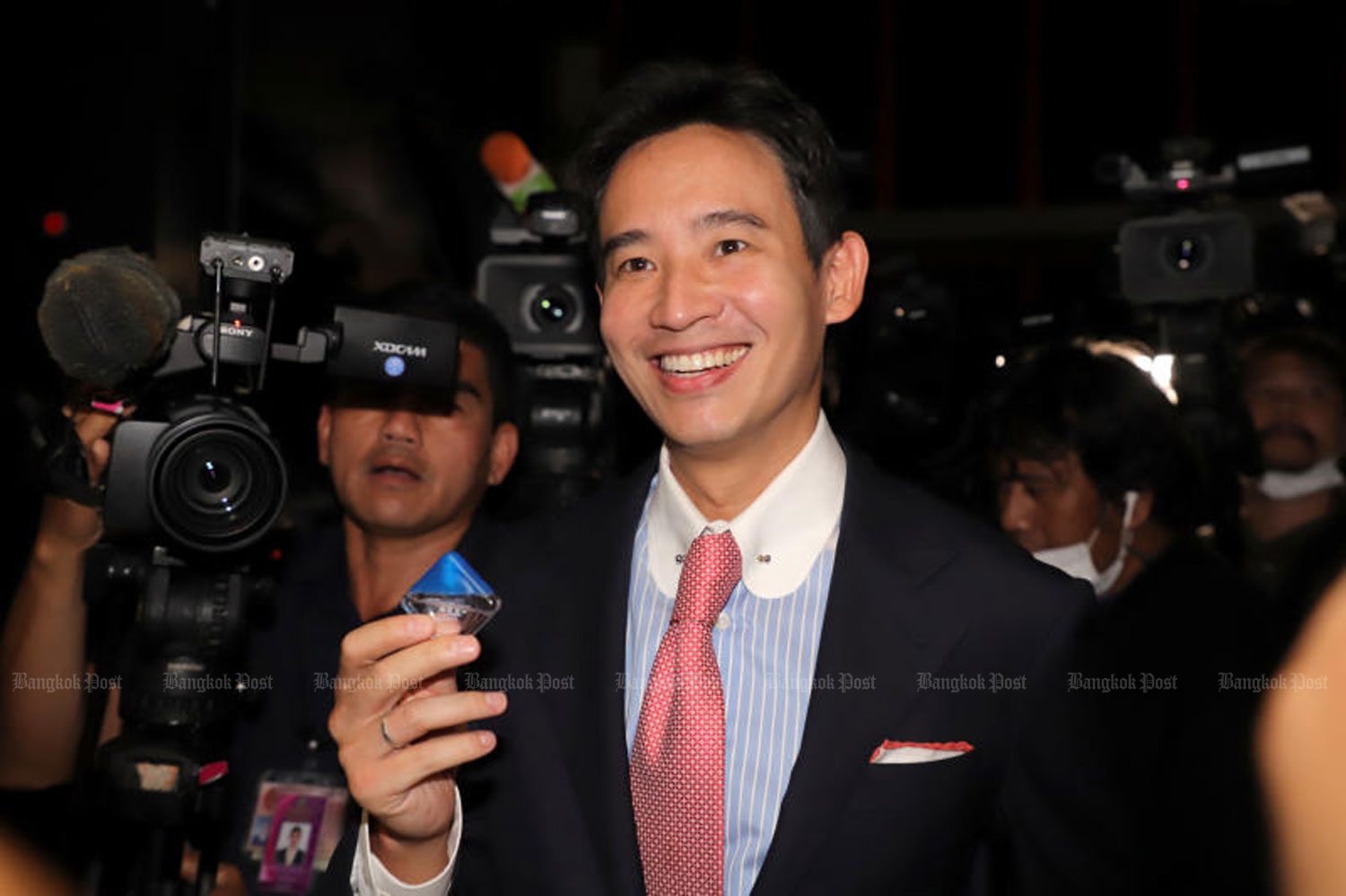
Move Forward Party leader Pita Limjaroenrat has expressed concern that any attempts to block him from being nominated as prime minister again on Wednesday will affect the entire parliamentary system in the future.
He also reiterated on Tuesday that would step aside and allow the Pheu Thai Party to take the lead in forming a government if he failed to secure enough support in the second round of voting for prime minister on Wednesday.
On Tuesday, a meeting of representatives of the coalition allies, other political parties and senators could not reach a conclusion on whether Mr Pita could legally be renominated for prime minister on Wednesday, after the joint session rejected him on July 13.
Mr Pita said the eight coalition parties earlier discussed the legal aspects of the question during their meeting on Monday. They concluded that a vote for a prime minister is related to the constitution and the citation of parliamentary regulations was not related. The nomination of a prime minister was not a parliamentary motion, he noted.
However, he admitted he was worried that any attempts to use parliamentary procedure to block him from being nominated a second time would affect the entire system because it would be politically binding and that may affect other parties.
”If it binds me, binds my party, then it will bind the second, third and fourth parties,” he explained. “ … After this, the nominations of political office holders would be (parliamentary) motions.
“Even courts or parliament, if such a thing happens, it will … be a problem in the future for those who assume political positions. It’s a big issue. Today, we must be clear in our minds — it’s the difference between a nomination and a motion.”
Speaker Wan Muhamad Noor Matha said on Tuesday that he would not rule on the issue until after parliament debates it on Wednesday.
Mr Pita said earlier that he would need to see a significant increase in the number of votes in the second round of voting to justify another attempt. Asked to clarify what he meant, he said the vote must be increased by 10% or to between 340 and 350.
Last Thursday he received 324 votes in favour and 182 against, with 199 abstentions, from the 705 members participating. He needed 375 votes — a simple majority of the 749 combined House and Senate seats — to win the office.
He received 311 votes in favour from MPs and 148 against, with 39 abstentions. He received just 13 votes in favour from senators, 34 against and 159 abstentions. Forty-three senators were absent.
Asked whether the eight coalition parties would adjust the memorandum of understanding (MoU) they signed in May in order to win more support for forming a government, Mr Pita said the MoU remained unchanged and he had not yet been contacted by any party to make changes.
He confirmed that Move Forward would stay with Pheu Thai if the latter took the lead to form a coalition government, saying it was what people wanted as the two parties and the six other allies had signed the MoU.
“If I in my capacity as being in the winning party cannot continue, I will give way to the first runner-up. I think we will stay in the same boat because we have joined hands to form a government of people’s hope,” he said.